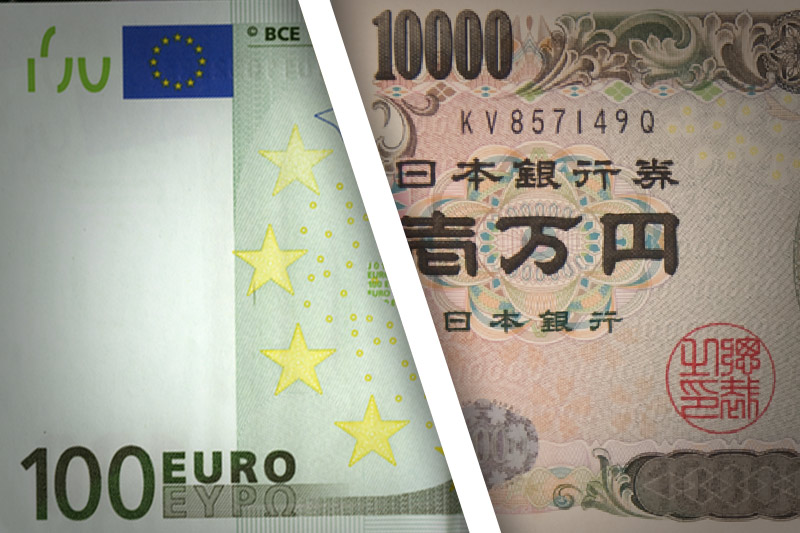Investing.com - The euro gained against the yen on Wednesday even though German sentiment data missed expectations and fueled already growing expectations for a possible European Central Bank rate cut.
Sentiment that the Bank of Japan will continue with its accomodative monetary policies and possible loosen further sent investors hunting yield.
In U.S. trading on Wednesday, EUR/JPY was up 0.17% at 129.54, up from a low of 128.82 and off a high of 129.79.
The pair sought to test support at 127.88, Monday's low, and resistance at 130.67, Monday' high.
The euro came under pressure earlier after a widely watched barometer of German business confidence missed expectations.
In Europe earlier, the Ifo index of German business climate fell to a four-month low of 104.4 in April from 106.7 in March.
Analysts had expected the index to tick down to 106.2.
The report came in wake of weaker-than-expected German and eurozone industrial production and service-sector output figures, which have stoked expectations for the ECB to cut benchmark borrowing costs.
The European Central Bank will hold a monetary policy meeting in early May.
Still, investors sold the yen on sentiments that the Bank of Japan, which has launched massive monetary stimulus measures to steer its economy away from deflationary decline, has room to loosen policy further, which sent investors ditching Japanese debt and snapping up higher-yielding currencies such as the euro in search of yield.
The euro, meanwhile, was down against the pound and up against the U.S. dollar, with EUR/GBP trading down 0.02% at 0.8530 and EUR/USD trading up 0.13% at 1.3020.
Sentiment that the Bank of Japan will continue with its accomodative monetary policies and possible loosen further sent investors hunting yield.
In U.S. trading on Wednesday, EUR/JPY was up 0.17% at 129.54, up from a low of 128.82 and off a high of 129.79.
The pair sought to test support at 127.88, Monday's low, and resistance at 130.67, Monday' high.
The euro came under pressure earlier after a widely watched barometer of German business confidence missed expectations.
In Europe earlier, the Ifo index of German business climate fell to a four-month low of 104.4 in April from 106.7 in March.
Analysts had expected the index to tick down to 106.2.
The report came in wake of weaker-than-expected German and eurozone industrial production and service-sector output figures, which have stoked expectations for the ECB to cut benchmark borrowing costs.
The European Central Bank will hold a monetary policy meeting in early May.
Still, investors sold the yen on sentiments that the Bank of Japan, which has launched massive monetary stimulus measures to steer its economy away from deflationary decline, has room to loosen policy further, which sent investors ditching Japanese debt and snapping up higher-yielding currencies such as the euro in search of yield.
The euro, meanwhile, was down against the pound and up against the U.S. dollar, with EUR/GBP trading down 0.02% at 0.8530 and EUR/USD trading up 0.13% at 1.3020.
